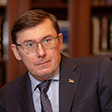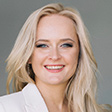Німеччина відкриває двері для Молдови приєднатися до Європи. А де ж Україна?
Eurasia Daily Monitor
September 5, 2012 – Volume 9, Issue 160
German Government Embraces Moldova's European Agenda
German Chancellor Angela Merkel's August 22 Moldova visit is being described as "historic" in Chisinau (see accompanying article). The sheer rarity of such events in Moldova is one reason behind that description. Visits by Western leaders of comparable caliber were very few and far apart during 21 years of Moldova's independence: French then-President Jacques Chirac in 1998, US Defense Secretary Donald Rumsfeld in 2004, US Vice President Joseph Biden in 2011. Those were one-off episodes without proper preparation, without deliverables, and without a follow-up process.
The German chancellor's visit differs starkly in all those respects and presages enduring consequences in drawing Moldova closer to the European Union, conditional on Moldova's reform performance. She held out the prospect of European integration for the country and all its citizens, including (as she repeatedly said) those in Transnistria as part of Moldova. Although she could not have carried an EU mandate, Merkel spoke on behalf of the EU's weightiest country in Brussels and most influential in Chisinau, where a German diplomat heads the European Union's mission. According to that diplomat, Ambassador Dirk Schuebel, Merkel's visit "exceeded most people's expectations" (Moldpres, August 30).
On this visit, Merkel shifted Berlin's tone away from bureaucratic caution and toward positive political incentives. She assessed Moldova's reform performance more favorably and more encouragingly than had previously been the case in Berlin. And while Germany does not participate in the 5+2 international negotiations on the Transnistria conflict, Merkel announced in Chisinau that she would pursue her 2010 Meseberg initiative on the Transnistria conflict (see below) directly with the Kremlin.
In Berlin as in Brussels, Prime Minister Vlad Filat is seen as leading Moldova's reforms with his team. Moldova is currently rated as front-runner in the EU's Eastern Partnership program. Admittedly, that program's criteria fit Moldova's circumstances more closely, compared with the other five participant countries. And after losing Ukraine at least temporarily by default, the Eastern Partnership looks to Moldova for a demonstration of the program's success. This program is a Swedish-Polish initiative, backed by some European Commission officials, but otherwise under-resourced. Germany is no enthusiastic supporter of this six-country program, but is selectively backing Moldova's aspirations. Filat has earned Merkel's support during a series of bilateral meetings with her in Germany and at European People's Party (Christian-Democrats) international conferences. The personality factor seems not without significance: "Your country's thriving development is a goal very close to my heart," Merkel declared in Chisinau (www.bundeskanzlerin.de, August 23).
Beyond this, however, Berlin seeks to incentivize Chisinau to go along with the Meseberg initiative, with all its uncertainties even for Berlin at this stage and its potential risks for Moldova. Under the Meseberg Memorandum, signed by Merkel with Russia's then-President Dmitry Medvedev in 2010, Germany proposes a joint EU-Russia decision-making mechanism on European security, asking in return for a token of Russian cooperation in resolving the Transnistria conflict. Given the continental-scale implications of such a tradeoff, Transnistria may seem a low-cost ticket for Russia's elevation into Europe's deliberative councils. This German initiative lacks EU endorsement. Russia seems in no hurry to respond, possibly awaiting more specific German proposals. Meanwhile, Moldova has managed to circumvent its constitutional crisis (without yet resolving it) in March 2012 through the election of a state president. This made it possible for Merkel to schedule her long-expected visit to Moldova.
Merkel delivered a speech to the Parliament and a press conference in Chisinau. Unusually detailed, meticulously worded for nuance (the German original texts reveal this more clearly than the translations), and geared to ongoing and planned EU and German assistance programs, Merkel's statements reflect thorough preparation and intentions to pursue a follow-up process. She announced Germany's support for Moldova's triple goal of signing an association agreement with the EU, signing a deep and comprehensive free-trade agreement, and completing the action plan for signing a travel-visa liberalization agreement with the EU. By the same token, Merkel cautioned Chisinau that it needs to persuade some other influential West European countries through its performance.
To assist Moldova toward those goals, Merkel announced that the EU has budgeted ?122 million ($153.5 million) to support Moldova's reforms in 2013. Germany is adding ?15 million ($18.9 million) on its own behalf in 2013, as well as assigning economic and legal advisers to Moldova. "Rest assured that we in Germany do more than just acknowledge the readiness to reform in Moldova. We shall stand by you continuously with advice and assistance" (www.bundeskanzlerin.de, August 22, 23).
With this move, and citing the "more for more" principle (integration steps rewarding internal reforms), Germany positions itself at the forefront of West European countries receptive to Moldova's aspirations. Noting that the Eastern Partnership is a framework program for six participant countries, Merkel underscored that each country is being evaluated individually, and she singled out Moldova as the one eligible for signing those agreements with the EU (see above): "That is a success of this government." The target date for signing is the end of 2013 at the Vilnius summit during the Lithuanian presidency of the EU.
-Vladimir Socor
Angela Merkel Opens a European Perspective for Moldova
Visiting Moldova on August 22 (see accompanying article), German Chancellor Angela Merkel declared twice unambiguously that Moldova does have a "European perspective"-albeit in a "step-by-step process"; and "we shall accompany you along this path" (www.bundeskanzlerin.de, August 22, 23). Potentially, this opens the possibility of Moldova's recognition as an EU candidate country down the road, beholden to the standard conditionalities. Such a message constitutes a major political incentive for Moldova (as it would for any would-be candidate country) to implement the EU reform criteria. Filat and Foreign Affairs Minister Iurie Leanca have assessed this message as a breakthrough for Moldova (RFE/RL, August 29; Moldpres, August 30). The opening of a "European perspective" can strongly motivate reform and anti-corruption efforts. That perspective helps overcome the resistance of special interest groups that stand to lose from judicial, law enforcement, and market economy reforms.
If consistent, the "European perspective" message can sustain public support for the twin agendas of European integration and reforms. That support is currently faltering among Moldova's populace. Although European officials cite Moldova as the EU Eastern Partnership's one potential "success story" (with Chisinau's elite opinion embracing that assessment), Moldova's ordinary citizens hardly experience any palpable gains from that evaluation at this stage. Moldovan opinion surveys in 2011 and 2012 show support for European integration declining toward 50 percent, with support for the Russia-led Eurasian Customs Union rising toward that same level (Unimedia, Infotag, July 24; Jurnal de Chisinau, August 6). Such dramatic shifts stem from the West's multiple crises, which appear to contrast with Russia's resilience and recovery. Moldova's Communist Party had championed the European orientation while in power, but has recently shifted with the perceived winds toward a pro-Eurasia orientation, and leads the party's mass base in that direction. Russia's mass media, dominant in Moldova, propagates stories framed with rhetoric on Eurasia versus Europe, usually without an offsetting message from Europe itself. Merkel's visit has now brought an offsetting message and set a follow-up process in motion.
Meanwhile, Moldova remains vulnerable to Russian economic leverage, the impact of which extends to Moldova's domestic politics. In the immediate wake of Merkel's visit, Filat is scheduled to visit Russia under those constraining circumstances. Receiving him will be Russian Prime Minister Dmitry Medvedev, co-signatory with Merkel of the Meseberg Memorandum on Moldova in 2010 while Medvedev was president of Russia (see accompanying article). Since then, however, the Kremlin has launched its Eurasian Union project; and Medvedev will probably hold out this alternative for Moldova during Filat's impending visit. Russian President Vladimir Putin is said to consider joining that conversation, apparently to pitch the Eurasia option. Filat will have to fend it off diplomatically in his response.
In that context, Merkel's European message in Chisinau carries a double address: directly to Moldova and indirectly to Russia. It lays down a marker for Europe in Moldova, clearly delimiting the country from Russia's Eurasia project, and offering a European choice to Transnistria as part of Moldova.
The Moldovan government has a one-year window of opportunity to sign the EU association agreement, deep and comprehensive free trade agreement, and a liberalized travel-visa agreement with the EU, during the second half of 2013. Those agreements, once signed, could sharply reduce the current levels of Moldova's dependence on Russia for export markets and migrant labor remittances. Moldova's citizens would then experience palpable gains from trade with and travel to European Union countries. Chisinau would gain more political elbow room vis-à-vis Moscow, while the aberrant pro-Eurasia trend would recede in the country.
Late 2013 is a political deadline with triple significance. The EU will at that point hold its Eastern Partnership balance-sheet summit, potentially highlighting Moldova and confirming a European perspective (see above) for the country. At that same time Germany will hold parliamentary elections, which might change the German government's composition to Merkel's detriment (her Christian-Democrats face an uphill re-election campaign, their right-of-center Free-Democrat allies at the Foreign Ministry will almost certainly lose their place in the coalition, while the left-leaning and Russia-friendly Social-Democrats seem likely to re-enter a coalition government). And at that same point, Moldova will be embarking on its own parliamentary election campaign.
Filat's party could win those elections on the basis of leading the country's European integration process. Liberalized travel to the EU could become a clinching argument to Moldova's voters, faster than the effects of free-trade agreements. The government must work against the clock for the EU association and related agreements to be signed, sealed and delivered within that time frame. Often in the EU, and always in Europe's East, a project can only succeed if adopted and championed by at least one powerful member country. Filat's government has apparently succeeded in motivating such a champion in Berlin.
-Vladimir Socor






